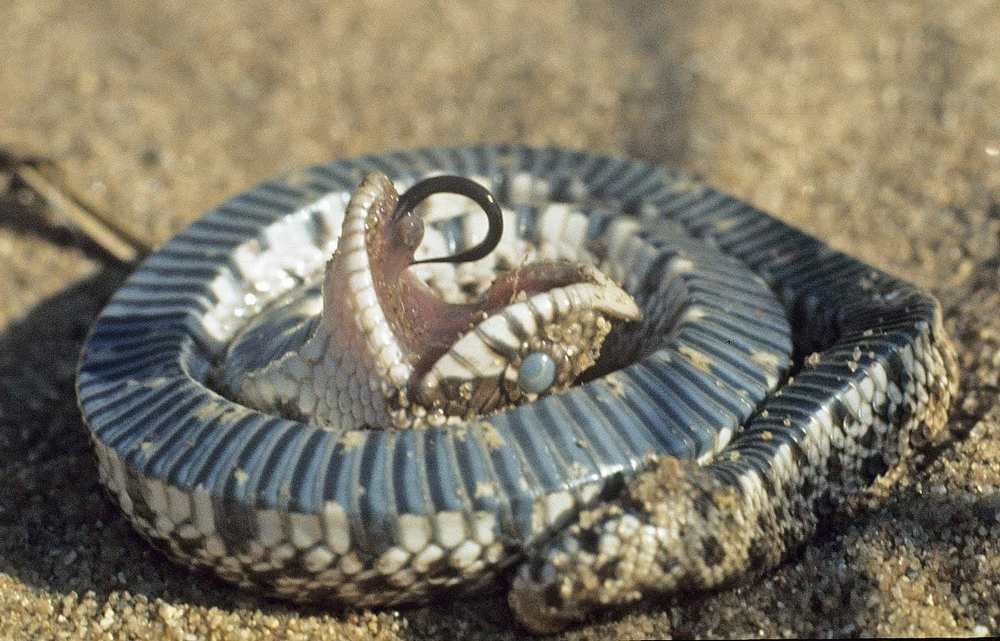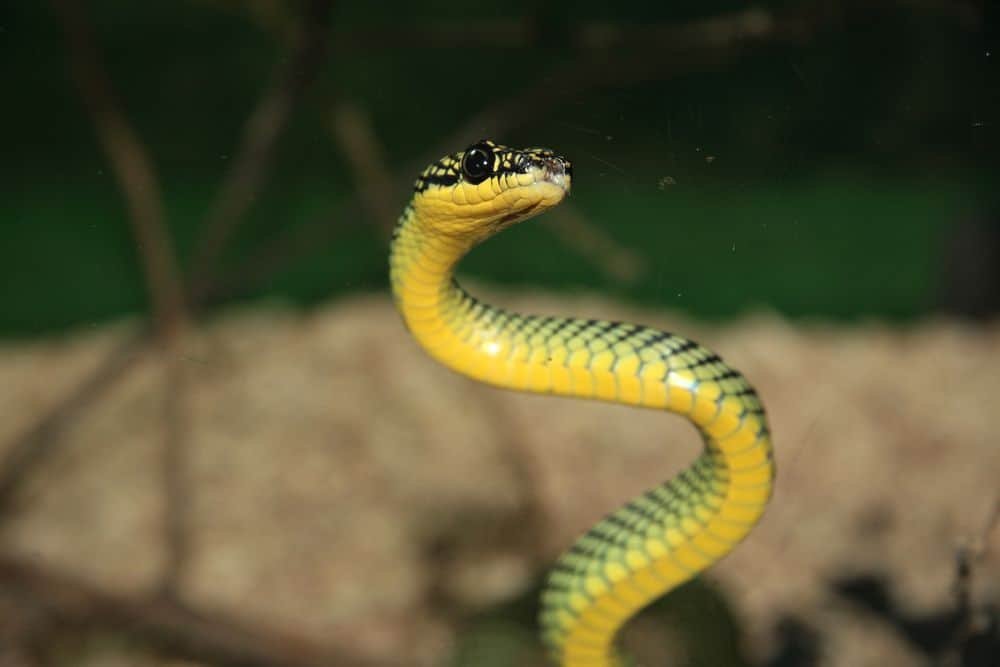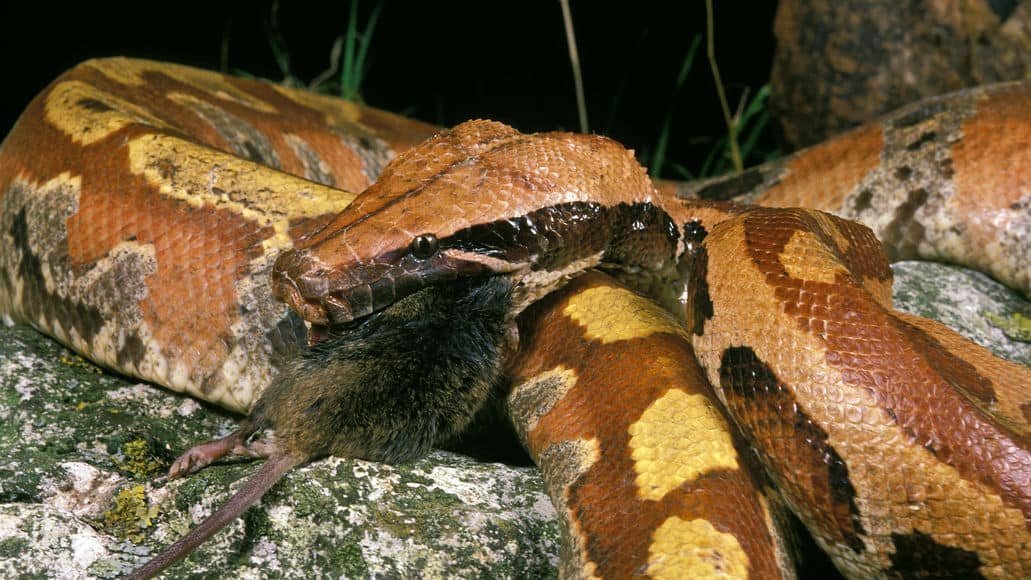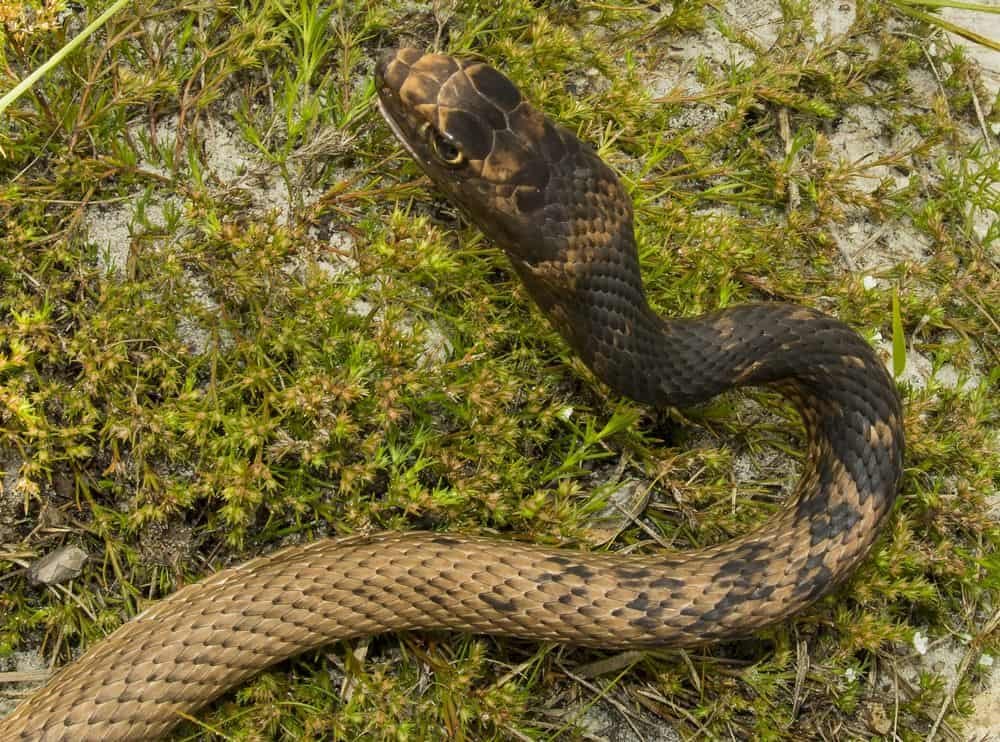
Few things are scarier.
It is obvious your snake has no control over its movement.
It is scared and that scares you.
But what is the reason for the spasm?
Can snakes have seizures or is it something else?
Keep reading to learn why snakes sometimes twitch like this, if it is a seizure, and what you can do about it.
Table of Contents
Can Snakes Have Seizures?
Yes, snakes can experience seizures. There are several types of seizures that can affect snakes, but two of them are more common than others: corkscrewing and stargazing.
When having seizures, snakes have no control over their body movement. They usually happen when they are experiencing neurological problems and are about to die. The neurological issues are usually caused due to problems during breeding or from disease.

Let’s investigate why snakes might experience seizures or similar symptoms. We’ll also take a closer look at three common types of seizures snakes can have.
Why Snakes Twitch
There are various reasons why snakes might experience twitching or seizures and different types of seizures that can happen. Some are more severe than others. Two types of twitching or spasms that are more intense are the aforementioned corkscrewing and stargazing.
Corkscrewing is a type of seizure in which snakes curl up their neck, similar to a corkscrew motion. Stargazing causes their head to get stuck looking upwards. Both these conditions indicate an underlying neurological problem.
However, your snake’s twitching does not always indicate a neurological issue. The following are some other reasons for seizures in snakes.
- The snake was triggered by sudden noise or movement
- The snake is restless due to hunger
- You mistook its normal movement for a seizure
The key thing to identify is whether the snake can control its movement or not. If you think the snake is moving uncontrollably, there might be an issue with its neurological system.
Neurological Problems That Can Cause Seizures
Seizures often occur due to problems inside the brain, but they may start elsewhere in the body and affect the brain over time. Most snakes that suffer from seizures have a genetic condition that leads to neurological issues.
These issues then lead to involuntary movement, i.e. a movement that snakes can’t control.
Injury or trauma can also cause neurological issues in snakes, particularly wild ones. When they attempt to strike at a target or predator, they might get injured. Snakes can also get hit or run over by a car or fall from a high tree, which can cause injuries.
When snakes experience this type trauma, it can cause them to behave unusually, and they might appear to have spasms. It can also cause damage to their brain, which can result in seizures.

Surprisingly, venom can also cause neurological issues among snakes. Most snakes are somewhat immune to their own venom, and some are also immune to the venom produced by other species.
However, not all snakes are immune to venom, and it can cause neurological problems if it gets into their bloodstream.
Diseases That Can Cause Seizures
Inclusion Body Disease (IBD) is a common disease that affects snakes. It is a viral infection without any cure, and it eventually causes snakes to die.
Although IBD isn’t a neurological disease, it has certain symptoms similar to seizures or spasms, which cause snakes to lose control of their bodies.
Snakes with IBD often roll onto their back and can’t become straight, since it hampers their sense of direction. They might also twist their necks, similar to corkscrewing.
IBD is prevalent in pythons and boas only, and it doesn’t only cause spasms. You might also notice your snake shedding too much skin, vomiting, losing weight, experiencing mouth rot or ulcers, and other symptoms.
IBD or other diseases don’t exactly cause seizures, but they may cause involuntary spasms, where the snake can’t control or fix its position or movement. This resembles a seizure,
Dietary Causes Of Seizures In Snakes

While diet isn’t a contributing factor to seizures in snakes, some snakes are known to experience seizures if they have certain substances in their diet.
For instance, the presence of the enzyme thiaminase can cause seizures in snakes. It is present in several fish species, so snakes that eat fish are more susceptible to seizures from this enzyme.
Foods that contain thiaminase break down thiamin, or Vitamin B1, in the body. Due to this, the snake can’t absorb the vitamin at all, thus developing a vitamin deficiency. If the snake only eats fish, the vitamin deficiency will worsen with time and cause it to develop seizures.
Does Overheating Cause Neurological Issues in Snakes?
Wild snakes are used to living in certain conditions. If a snake is out of its natural habitat, you need to provide the environment it needs. If you keep it in conditions that are too hot and humid, this could lead to bacterial growth on its body.
Moreover, overheating can affect its metabolism and, in some cases, also cause neurological problems. This mostly happens when snakes have prolonged exposure to high temperatures. They may suffer neurological damage with burns, further leading to seizures, among other issues.
Types Of Snake Seizures

Let’s take a closer look at three types of snake seizures. As mentioned above, the first two are the most common.
What Is Corkscrewing?
Corkscrewing is a type of seizure that causes snakes to lose control of their body. They involuntarily twist their neck, similar to a corkscrew shape.
Generally, snakes move their necks forward when they slither, but corkscrewing causes them to twist, preventing them from moving. They also lose their sense of direction. It even affects their diet.
What Is Stargazing?
Stargazing is another type of spasm that involves involuntary muscle contractions. Spasms do not always result in sudden movements. Stargazing causes the snake to get stuck in a certain position, making it seem like it is looking upwards. Its muscles are frozen in place. It can take a long time to regain their original position.
What Is Head Wobbling?
Head wobbling is a neurological problem among snakes, particularly the spider ball python and other spider morph species. It causes the snake’s head to rock back and forth shakily. There is no way to get it to stop. The involuntary movement is also accompanied by a loss of focus or coordination, making it difficult to strike at prey.
In most cases, head wobbling isn’t a life-threatening issue, and snakes suffering from it can still mingle and interact with other snakes. However, it can cause newborn snakes to die. It can also become more severe in fully grown snakes.
Snakes Having Seizures: Final Thoughts
Watching you snake have a seizure is a scary thing, because you know it is suffering and there is nothing you can do to help. And since most twitching is caused by neurological issues, there is often nothing you can do to prevent future seizures.
If your pet has regular spasms, the best thing you can do is take it to a vet. Even if there is nothing they can do to cure the underlying disease or disorder, at the very least, they can tell you what you can do to make your snake more comfortable.

Leave a Reply